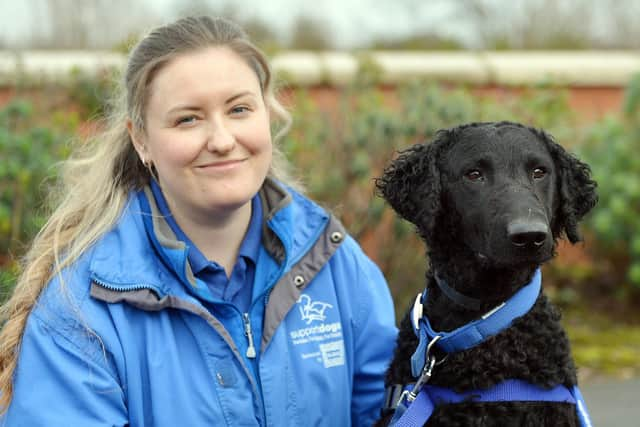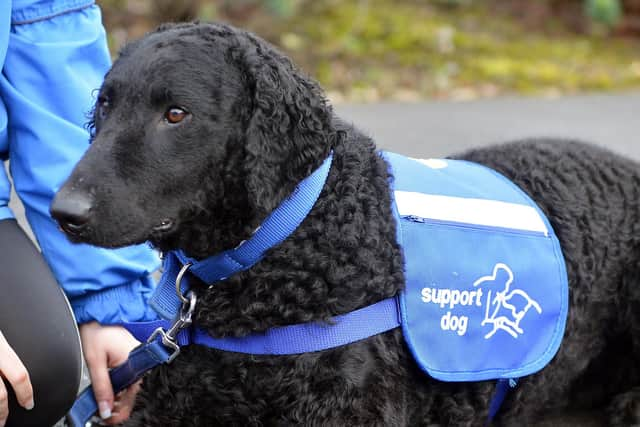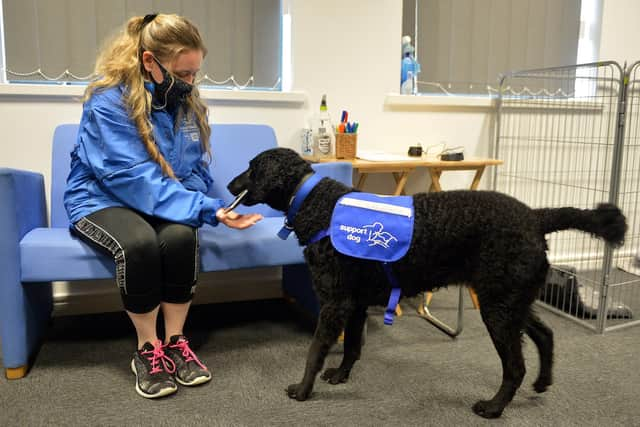Meet Sheffield's hero hounds helping disabled people to live more independent lives
and live on Freeview channel 276
For the last 30 years, Sheffield-based charity, Support Dogs, have been training assistance dogs for children with autism, adults with epilepsy, and people with other disabilities such as MS and cerebral palsy - enabling them to lead safer, more independent lives.
The charity takes in unwanted dogs and puts them through a professional training programme to care for clients.
Advertisement
Hide AdAdvertisement
Hide AdDanny Anderson, from Support Dogs, said: “For a child with autism, the dog there is all about keeping that child safe but also enabling them to leave the house and is able to help them feel calm and focused, so the dogs we need for that programme are really calm, laid back, and chilled dogs.


“On the epilepsy programme, we have really focused dogs, so they are going to give you a verbal warning before you have an epileptic seizure.
“For the disability programme, the dog becomes your day to day carer, so it helps you fetch your medication, it gets you undressed, opens doors, fetches items, all sorts of things.
“When we do our training the main thing we are looking for is confidence. A dog that is just confident in lot’s of different situations and is not going to be fazed by traffic, noise, kids, adults, cars, things falling over, so it’s just able to deal with things and be happy as well as being busy and then the training goes from there.”
Advertisement
Hide AdAdvertisement
Hide AdCurly-coated retriever Bess is just one of the dogs at the centre who has undergone training to become a professional assistance dog.


However, due to the pandemic, her training became difficult, like most of the charity’s dogs in training that have had ‘stay at home schooling’ via zoom calls.
Much of the charity’s work has been disrupted due to the lockdown, including in-person training with new clients, but once the restrictions have eased they can continue to work through their backlog of dogs and clients.
According to the support dogs charity, Bess is now making great strides in her training and is expected to go into the charity’s autism assistance programme.
Advertisement
Hide AdAdvertisement
Hide AdShe will soon spend time with a foster family to get her used to being around children before going on to her final training, where she will be matched with a child who has autism.


Dog trainer Danielle Kennedy said: “Bess is naturally drawn to children, and when we’re out, she always wants to go and say ‘hi’ to youngsters of all ages.
"We think she will make a great autism assistance dog.”
From a financial point of view, the charity which operates entirely on voluntary donations and fundraising has seen a decline in income of around 40 per cent.
Danny added: “Go to our website supportdogs.org.uk, and you can make donations on there.
Advertisement
Hide AdAdvertisement
Hide AdPeople can also sponsor our support dogs - we’ve got puppies in training or working support dogs who are already out there working with families with autism, epilepsy and disabilities.
“Five pounds a month can make a big difference to us, and we are kind of reliant on that at the moment.”